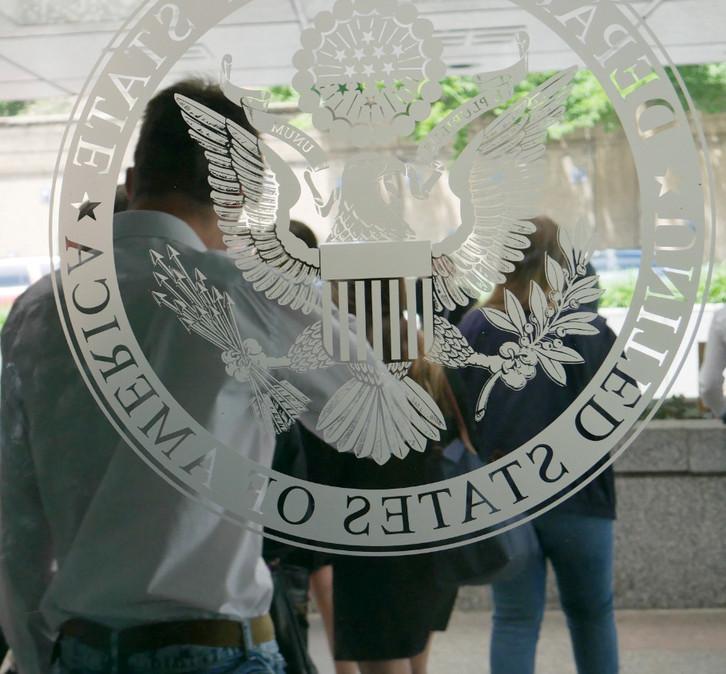
There are two aspects of the theory of just war, jus ad bellum, or the justice of any given war, and jus in bello, referring to just conduct in the waging of war. There may be an overlooked analogy for American diplomacy.
In the late 1990s I heard a Brazilian ambassador address an American lunch group, saying that Brazil’s growing economic heft would force a re-balance of power between the U.S. and Brazil. I queried him on what issues made a power relationship relevant. I expected him to point to less-visible, but real, trade or regulatory contentions. But he did not specify any issues in his response. Rather, he answered that the U.S. would “have to take account” of Brazil. The U.S. and Brazil had no differences of principle, and any disputes were quotidian, not all that significant. But, it seemed, he felt U.S. diplomacy treated Brazil cavalierly because our power allowed us to.
On June 30, Vladimir Putin characterized U.S. diplomacy as “trying at all costs to maintain their monopoly position.” Of course this statement ignored U.S. complaints of principle over Russian national conduct. Putin also maintained his practice of casting the complaints as tools of tangible interest, and ignoring any questions of principle. He diverted the question of pressuring dissenting social media voices by claiming the right to tax U.S. firms in Russia. He elided legal questions around Russia’s firing on a UK ship with a comment that the world would not go to war over it. Putin does not contest the principles but buries them by citing U.S. attitudes and hard interests.
In the analog to jus ad bellum, America is on the side of the angels. But it should always be much more difficult for a Putin to miscast our nature, or for a friendly nation to feel slighted. In diplomacy’s operational analog to jus in bello, we make it far too easy to dislike us.
As in a war with a just cause, we carry freedom’s moral appeal. That appeal, however, imposes an unusual burden on American diplomacy. A justly-originated war can retain that justice even if it is unjustly fought. But failure to “fight this war justly” can negate the justice of the cause.
The principles under American diplomacy and under its conduct both rest on America’s self definition in the Declaration of Independence: “We,” the “one people” separating from another, only describe ourselves as “holding” certain truths. Our conduct must show we hold them sincerely. America’s core interest requires U.S. diplomacy to act by our principles.
Harmony between our deep ends and worldly means can pose a paradox. The creed’s ethos, of rights and government by consent of the governed, leaves people free to undermine that very freedom. The self evident truths we hold are abstract, making us free to indulge chaotic, self-defeating, even immoral pursuits. Further, an abstract creed needs a body politic in which to live, and that body has unavoidable needs, which will conflict with others’. We have to defend our nation, if only as the vessel of our principles, and we must act by democratic choices, even if they are selfish – or self-destructive. Yet we cannot let our principles look like cosmetic cover for craven self interest.
America must constantly shape its diplomacy for comportment with America’s founding creed. That process must keep a national continuity through political mandates that can swing radically. The nation needs an institution that sees the paradox, and can keep constant vigil for the founding tenets through shifting electoral outcomes.
Such a guardian must have its own legitimate mandate to maintain this review. Any American may voice an opinion about American principles – but not as national expression unless given an electoral mandate. The only exception is for those formally charged to represent America through changing administrations. The diplomatic service, the nation’s official, professional institutional representative, carries that charge.
To acquit that charge today requires a highly specialized capacity. The diplomatic service must know the jus ad bellum analog of our principles, in deep fluency with the case for the unalienable rights. They must also keep national conduct supportive and exemplary of our ethos, in a sophisticated operational art to ensure the analog of jus in bello. Such a capacity was unheard of before. But 21st Century disruptions and dysfunctions confront us all with radical, basic questions: whether free will is an illusion, whether a free humanity can manage its impact in the world, whether technology can replicate people. Everyone needs a touchstone. America has one. If our political process calls for this capacity, and our diplomats grasp the role, America can carry our creed in our conduct. Brazilian diplomats will have their indignance salved. Putin will have his cynicism debunked. Freedom will have an unalloyed champion.